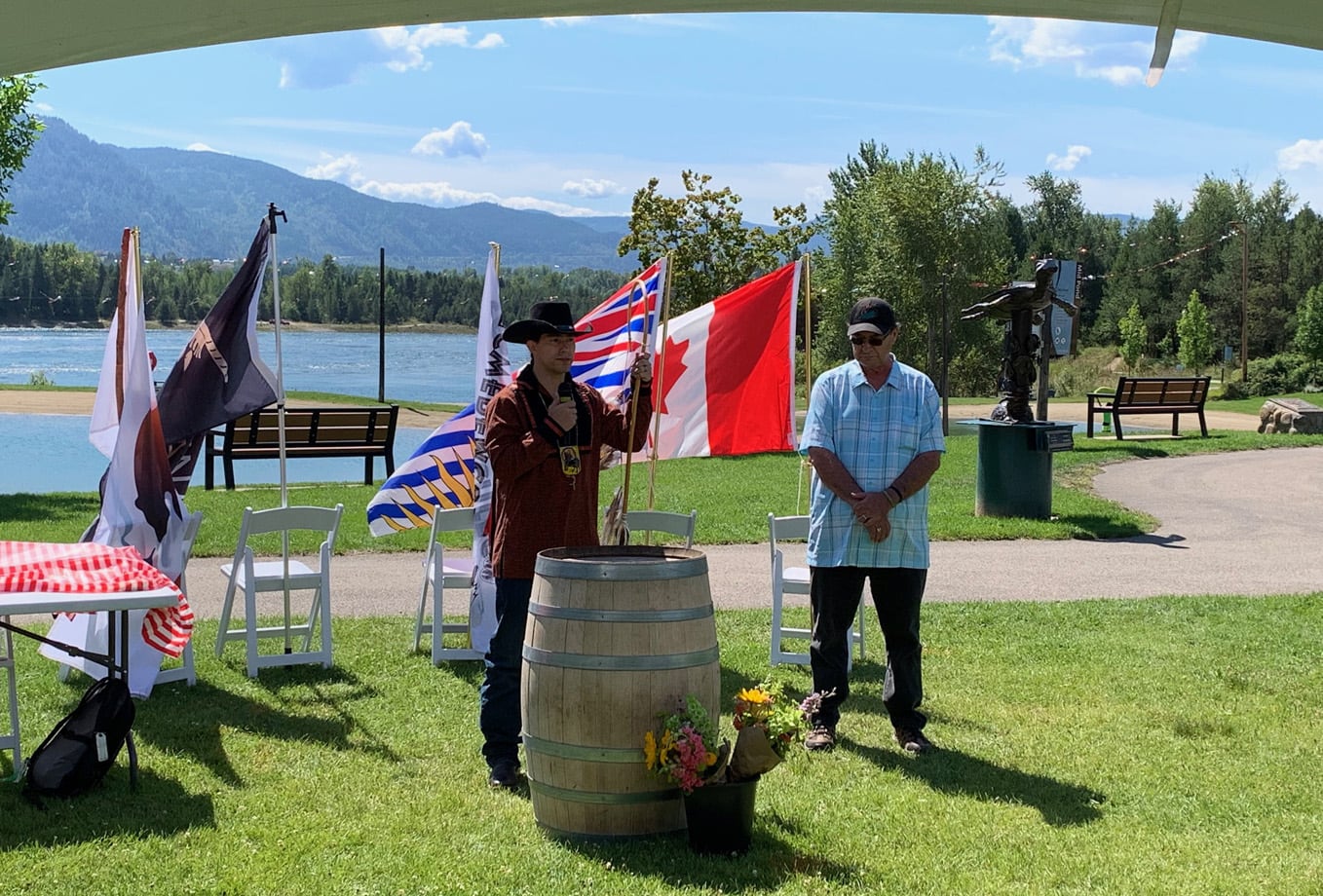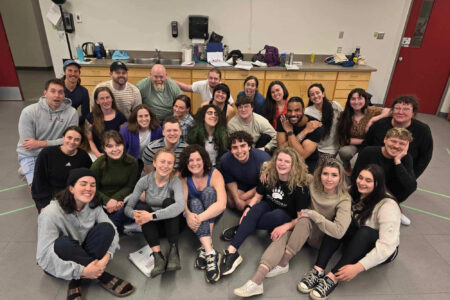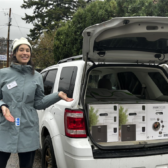River Talk: No one excluded, no one was ignored
Eileen Delehanty Pearkes has been researching and writing about the history and politics of water in the upper Columbia Basin since 2005.
Her book on the Columbia River Treaty, A River Captured, which can be purchased on Amazon was released in 2016. Recently, her travelling exhibit on the Columbia River Treaty, curated for Touchstones Nelson, won a national award from the Canadian Museum Association.
Pearkes has agreed to assist The Nelson Daily readers to understand the importance of the Columbia River Treaty to the region with another edition of River Talk.
On Monday, July 29, 2019 the federal, provincial and First Nations governments signed an agreement promising $2.25 million agreement that confirms three years of funding for salmon re-introduction above Washington State dams. It was an historic moment, for several reasons.
1. The defeat of improbability.
Twenty years ago, when I was researching and writing my first book, The Geography of Memory, I first discovered that the upper Columbia River once hosted spawning salmon from the Pacific. This revelation was followed by another one: Grand Coulee Dam blocked the Chinook, coho, sockeye and steelhead trout from swimming north with Canada’s permission. When I spoke to others about my wish to see the fish return, I was told it would never happen. Biologists, historians, local fishermen and dam operators all described the loss as permanent.
The only people who had any hope were the indigenous tribes. Over the past two decades, I have watched their persistence in negotiating with governments and the hydro-power industry. Their tireless effort on both sides of the international boundary slowly laid the foundation for this historic moment. The Upper Columbia United Tribes (based in Spokane, Washington, and led by Sinixt descendent D.R. Michel) have conducted extensive feasibility studies for years. The Ktunaxa, Secwepemc and Okanagan Nation Alliance have also held meetings with Canadian government officials, pressing for support.
2. Unity.
With restoration of their aboriginal rights in Canada still tied up in court, the Sinixt had no official place at the signing table during the ceremony in Castlegar. But that did not deter the tribes from including them. When Chad Eneas, chief of the Penticton Indian Band, rose to speak, he nodded to D.R. Michel to join him at the podium. Only once Michel had addressed those gathered beside the Columbia River on his ancestral, traditional territory, did Eneas speak. It was a remarkable moment in which indigenous protocols expanded well beyond those of our colonial government. No one was excluded. No one was ignored.
3. Health.
Behind those speaking and signing that day, the Columbia River flowed rapidly by, glistening in the light. To an untrained eye, nothing seemed amiss. But mid-summer is not a natural time of high-flow for the region’s rivers. The water rolling along had just been released from Hugh Keenleyside Dam, for use in the U.S. as the Columbia River Treaty dictates.
Over half-a-century after the treaty’s ratification, the effects of this water storage and release on the ecosystem are well-documented. Many would say that the dams lock the upper Columbia and its major tributaries in a permanently unhealthy cycle.
“We’ve got to start thinking beyond ourselves,” said Chief Byron Louis from the Secwepemc tribe.
Others spoke of the Salmon Spirit, and the resurrection of the June Hogs, Chinook of up to 100 pounds who once swam as far as Columbia Lake in the Rocky Mountain Trench. The restoration of salmon will inevitably return a measure of health to the entire river system, and to the tribes themselves. For them, the loss of the keystone species to the upper river system four decades ago was ecological, dietary and spiritual.
The recent signing moves in tandem with efforts south of the boundary.
In July, the Colville Confederated Tribes of northeastern Washington announced that they will conduct a “cultural release” of some salmon into the water above Chief Joseph dam, and perhaps above Grand Coulee.
After decades of hoping and studying, borders and other obstructions are melting quickly away. What once seemed impossible is becoming very probable, indeed.

Penticton Indian Band Chief Chad Eneas and Sinixt descendant D.R. Michel, director of the Upper Columbia United Tribes. — Submitted photo

























